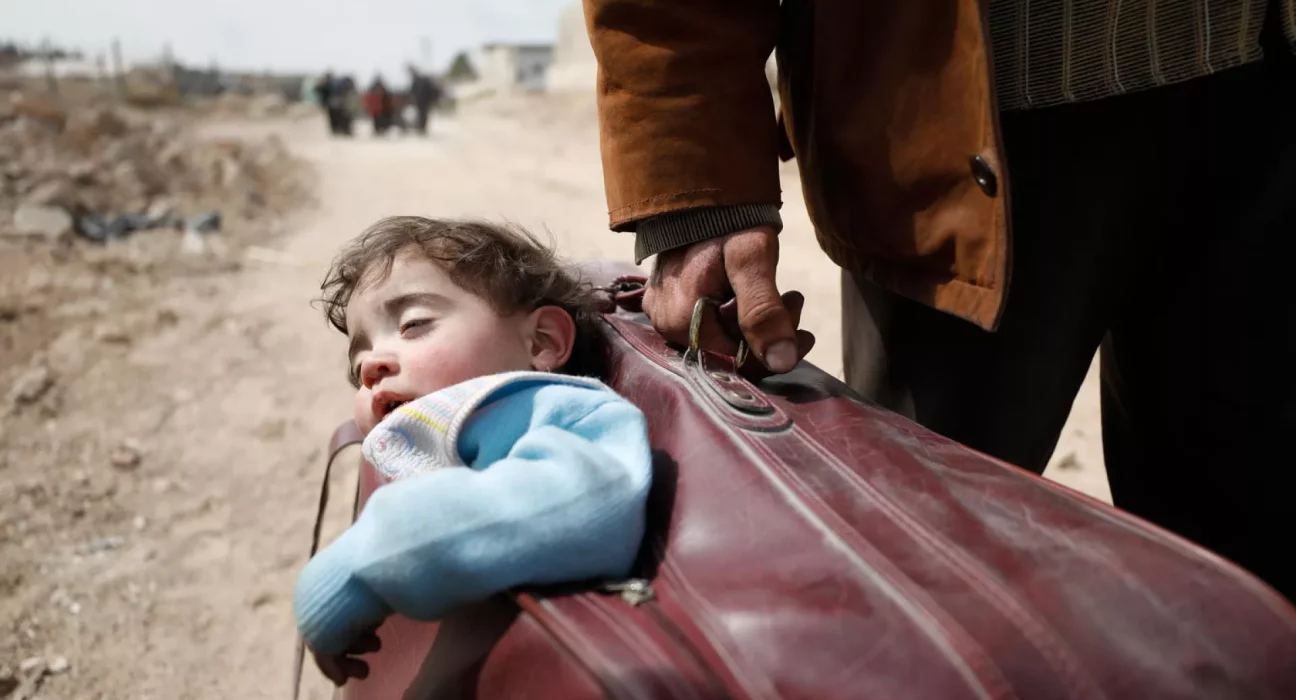The Psychological Toll of Displacement on Refugee Children

The displacement of children is one of the most tragic and challenging aspects of global crises, including war, natural disasters, and political instability. Refugee children are particularly vulnerable, as they are exposed to a range of traumatic experiences, including violence, loss, and the uncertainty of their future. The psychological toll on these children is profound and long-lasting, often affecting their mental health, development, and overall well-being. Understanding the psychological impact of displacement is crucial for providing the appropriate support and care to help these children heal and rebuild their lives.
Trauma and Loss
For many refugee children, displacement is a result of violent conflicts, armed conflicts, or other traumatic events. These children often witness the destruction of their homes, the loss of family members, and the devastation of their communities. Exposure to violence, including bombings, shootings, and other forms of brutality, leaves deep emotional scars. Additionally, the loss of their homes and familiar surroundings can contribute to feelings of helplessness, anxiety, and fear.
This trauma can manifest in a variety of ways, from nightmares and flashbacks to difficulty trusting others. Many children also experience separation from their families, either due to the chaos of displacement or as a result of being sent alone on perilous journeys to seek safety. The emotional pain of losing loved ones or being separated from family members can lead to long-term attachment issues and challenges in forming healthy relationships in the future.
Mental Health Effects of Displacement
The mental health effects of displacement on refugee children are far-reaching and can have a lasting impact on their development. The constant stress and anxiety associated with being displaced can contribute to a range of mental health disorders, including:
- Post-Traumatic Stress Disorder (PTSD): PTSD is one of the most common psychological conditions in refugee children. These children may re-experience traumatic events through flashbacks, nightmares, or intrusive memories, leading to distress and anxiety.
- Anxiety and Depression: The uncertainty of their future, combined with the trauma they have experienced, can lead to anxiety and depression. Children may feel a sense of powerlessness, sadness, and fear about their future and the safety of their families.
- Behavioral Issues: Refugee children may also exhibit behavioral problems such as aggression, withdrawal, or difficulty concentrating. These behaviors often stem from their emotional distress and may be a coping mechanism for the overwhelming feelings they are experiencing.
- Attachment Issues: Displaced children may struggle with attachment issues due to the separation from their families or the instability of their living conditions. Forming secure attachments with caregivers is essential for healthy emotional and social development, and disrupted attachments can have long-term effects.
Cultural and Language Barriers
In addition to the trauma of displacement, refugee children often face the challenges of adapting to new cultural environments. Moving to a new country with different languages, customs, and social norms can exacerbate feelings of isolation and confusion. The language barrier is one of the most significant obstacles that refugee children face, making it difficult for them to communicate, form friendships, or access education and healthcare services. This sense of alienation can worsen their mental health, as they may feel disconnected from their peers and unable to express themselves or seek support.
Barriers to Education
Access to education is one of the most critical factors in the well-being and future prospects of refugee children. However, displaced children often face numerous barriers to attending school. In many cases, they live in refugee camps or temporary shelters where educational resources are scarce, and formal schooling may not be available. Even when educational opportunities exist, refugee children may struggle to adapt to new curricula, especially if they do not speak the language of instruction or are unfamiliar with the educational system.
The lack of education not only limits a child’s ability to build a brighter future but also deepens their sense of isolation and helplessness. Education provides a sense of stability, purpose, and normalcy, all of which are essential for mental health recovery.
The Need for Mental Health Support
Given the psychological toll that displacement takes on refugee children, access to mental health support is critical. Many refugee children suffer in silence, as their emotional struggles may go unrecognized or be dismissed as a normal part of the migration experience. However, addressing mental health needs is crucial for helping these children rebuild their lives and integrate into their new communities.
Several interventions can help support the mental health of refugee children:
- Trauma-Informed Care: Providing trauma-informed care, which recognizes the impact of trauma on behavior and emotional responses, is essential for supporting refugee children. This approach prioritizes safety, trust-building, and empowerment, helping children feel secure in expressing their emotions and experiences.
- Psychosocial Support Programs: Psychosocial support programs offer refugee children safe spaces where they can talk about their experiences, participate in recreational activities, and build resilience. These programs can also provide opportunities for children to engage in creative activities, such as art or music, which can help them process their trauma in non-verbal ways.
- Cultural Sensitivity and Integration: Mental health support programs should also be culturally sensitive and tailored to the specific needs of refugee children. This includes providing services in the child’s native language, involving family members in the healing process, and respecting cultural norms and values.
- Access to Education and Social Integration: Ensuring that refugee children have access to education and social opportunities is crucial for their mental health recovery. Schools can play a pivotal role in providing a sense of normalcy and stability, while social integration programs help children develop friendships and connections with others.
The Role of Communities and Governments
Governments, humanitarian organizations, and local communities play an essential role in supporting the mental health and well-being of refugee children. It is important for policies to prioritize mental health services and education for displaced children. Governments should work to ensure that refugee children have access to healthcare, social services, and legal protections.
Local communities can also provide vital support by fostering inclusion and providing safe spaces for refugee children to express themselves. Welcoming environments that promote cultural exchange and understanding can help refugee children feel valued and reduce feelings of isolation.
Conclusion
The psychological toll of displacement on refugee children is profound and long-lasting. These children face multiple layers of trauma, from the violence and loss associated with displacement to the challenges of adapting to a new culture and environment. While the emotional and mental health needs of refugee children are significant, there is hope in the growing recognition of the importance of mental health support and intervention. By providing trauma-informed care, education, and social integration opportunities, we can help these children heal and thrive, ultimately giving them a chance to build a better future despite the hardships they have faced.










